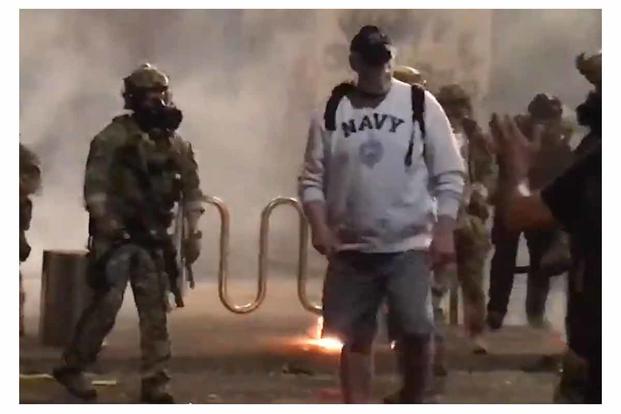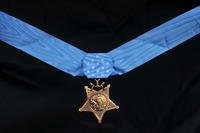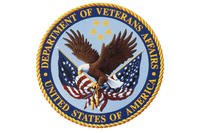Service members know that joining the military means handing control of most of their day-to-day lives over to Uncle Sam. But how they spend their time in their off-duty hours remains up to them, as long as it does not violate the law, military orders or command directives.
It's because of those instructions, rules and directives that service members don't have the same rights as civilians to freedom of speech and are barred from attending certain gatherings. What are the rules for active-duty troops who want to attend protests or make political statements? Here is a snapshot.
Can Active-Duty Military Members Attend Protests or Campaign Rallies?
According to military law experts, DoD Directive 1344.10 dictates whether active-duty military members can participate in political activities, including protests and rallies.
That directive, they say, does allow military members to personally engage in partisan activities, including writing letters to the editor for or against a specific candidate or attending events as spectators out of uniform.
But it blocks them from leading or actively participating in those events, publishing partisan political statements outside of a letter to the editor, speaking at any political gathering or soliciting votes.
A separate set of rules, DoD Directive 1325.06, further addresses active-duty troop attendance at off-base demonstrations. That instruction blocks troops from attending if they are on duty; they are in a foreign country; the activity is a "breach of law and order;" or "violence is likely to result," it states.
Can Active-Duty Military Members Display Campaign or Political Signs?
According to military-law experts, DoD Directive 1344.10 also addresses how and where military members are permitted to display political signage.
For the most part, the rule blocks troops from displaying any political signage on base, including on their private vehicle. The only exception, the rule states, is "a bumper sticker." Troops and their families living on base are also barred from publicly displaying political signs, posters and banners at their homes.
Can Active-Duty Military Members Vote?
Active-duty troops are not only permitted to vote, but encouraged to do so. There are a variety of rules, laws and federally funded efforts ensuring or promoting troops' ability to vote, even while deployed.
The Federal Voting Assistance Program is ordered by law and governed by DoD Instruction 100.04. That program encourages and supports absentee voting for military members and their families and provides nonpartisan assistance with voter registration.
Active-duty troops are also permitted to assist with nonpartisan voter registration efforts, according to DoD Directive 1344.10.
Can Active-Duty Military Members Join Political or Extremist Groups?
DoD Directives 1344.10 and 1325.06 also give guidance on whether troops can participate in political groups or parties or be affiliated with extremist groups, including supremacist organizations.
According to 1344.10, troops may join a political party but may not hold a leadership role. They may attend partisan fundraising activities or events and personally make donations, but may not actively raise funds.
Active participation in any supremacist group that promotes "illegal discrimination based on race, creed, color, sex, religion, ethnicity or national origin" or advocates the use of violence or force is completely prohibited by Directive 1325.06, according to Defense Department officials. Simply being a member of such a group while not actively taking part in any activities, however, may be permitted.
Can Active-Duty Military Members Disrupt Voting or an Election?
A number of military laws and instructions block troops from disrupting U.S. elections or attempting to overthrow the government, including Directives 1344.10 and 1325.06 and Uniform Code of Military Justice Article 94. Also, legal experts say, such activity falls under UCMJ Article 134, which bans actions detrimental to good order and discipline.
Stay on Top of Your Military Benefits
Military benefits are always changing. Keep up with everything from pay to health care by subscribing to Military.com, and get access to up-to-date pay charts and more with all latest benefits delivered straight to your inbox.













